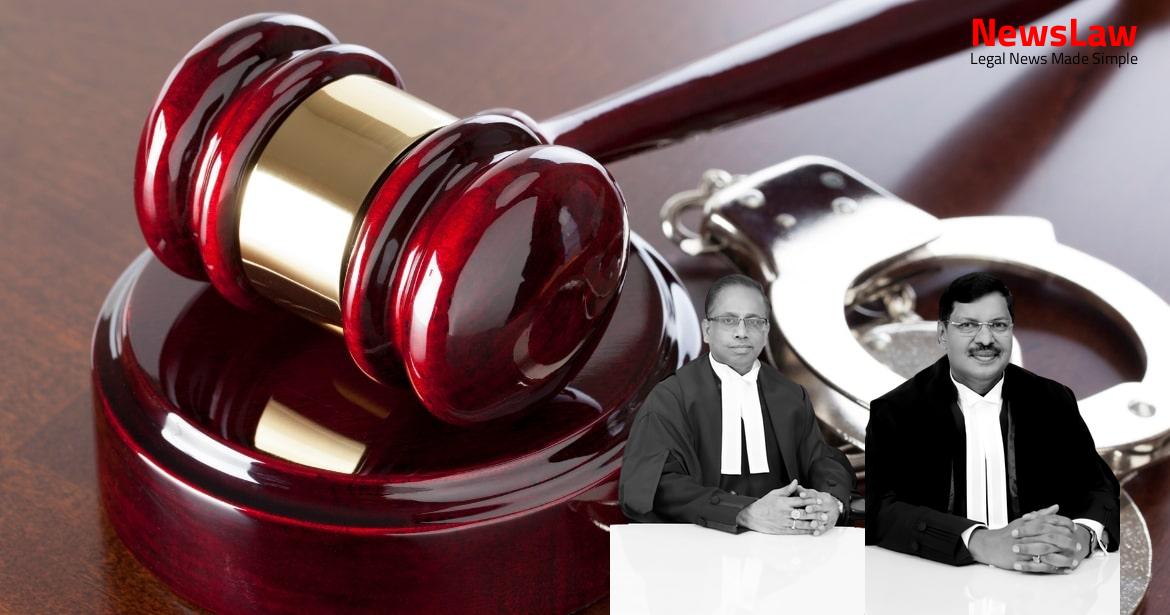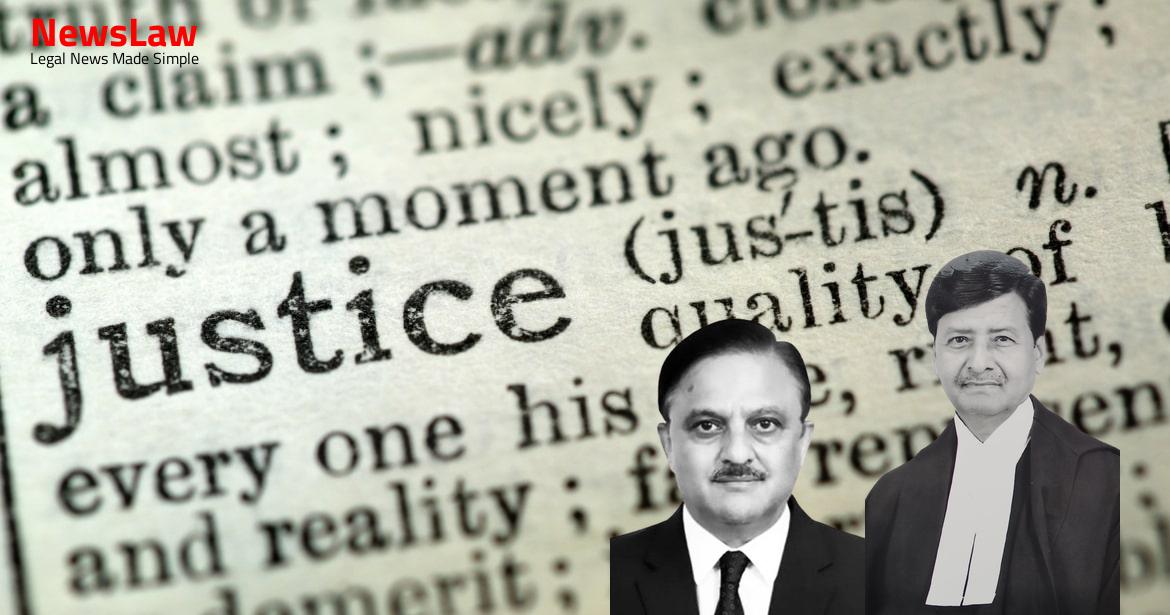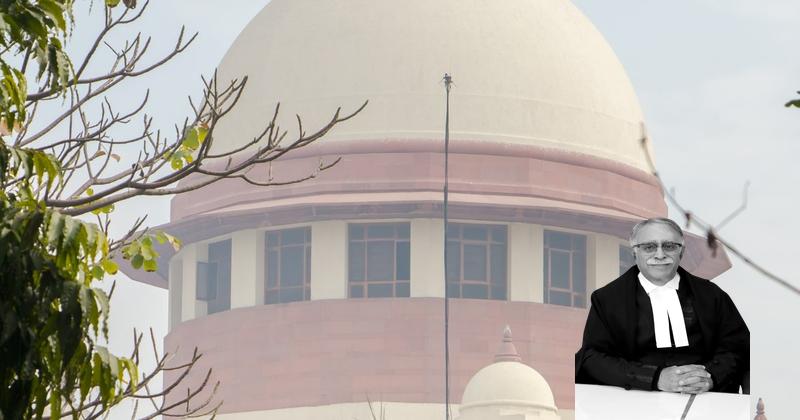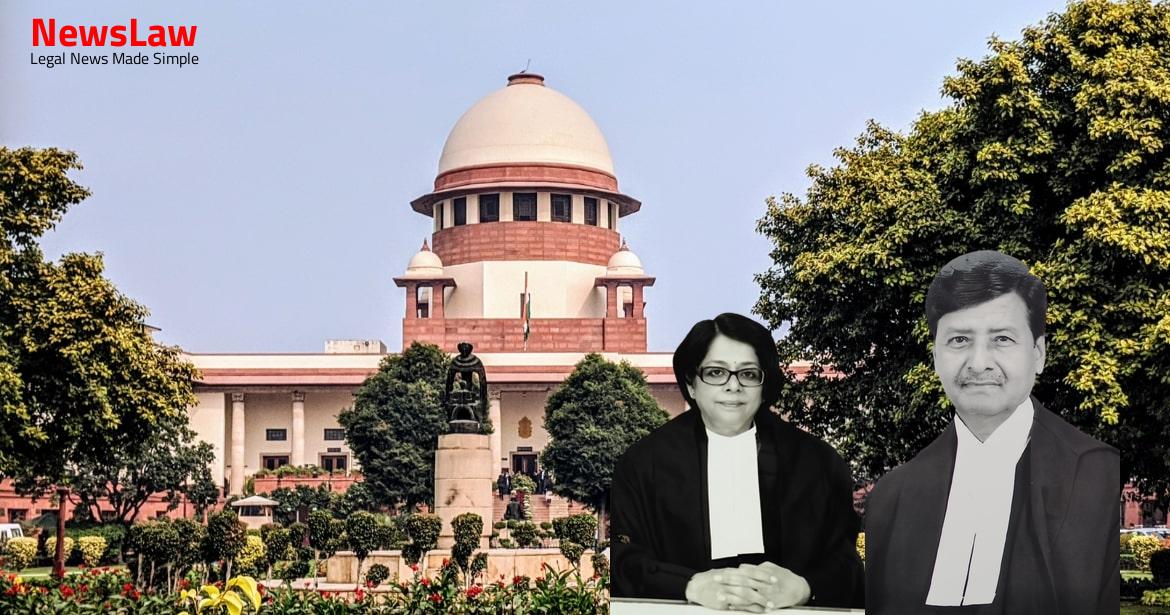In a significant legal development, the Supreme Court has pronounced its verdict on the case involving the misdirection in the proviso to Section 45 of the PMLA. The judgment addresses the errors made by the High Court in handling the matter. Stay tuned for more insights on this landmark ruling!
Facts
- Case against Mr. X dismissed due to lack of evidence
- Mr. X acquitted of all charges
- The prosecution failed to prove its case beyond a reasonable doubt
- Mr. X to be released from custody immediately
- The appeals challenge the judgment and order dated 01.07.2024 passed by the learned Single Judge of the High Court of Delhi at New Delhi.
- The learned Single Judge refused to grant bail to the appellant in Bail Application Nos.1675 and 1739 of 2024.
Also Read: Confirmation Dispute: Tripura University vs. Dr. Praveen Kumar Mishra
Arguments
- Shri Rohatgi, the Senior Counsel for the appellant, argues that there is no material on record to implicate the appellant in the charged offences.
- It is contended that since the investigation is complete, further custody of the appellant is unnecessary.
- Shri Rohatgi highlights that the appellant, being a woman, is entitled to special treatment under the proviso to Section 45(1) of the PMLA.
- Opposing the appeals, Shri S.V. Raju, the learned ASG, disputes the arguments presented.
- The ASG emphasizes that the appellant played a key role in facilitating the deal between co-accused Arvind Kejriwal and the south lobby.
- Statements of witnesses and retracted statements point towards the appellant’s involvement in the alleged offenses.
- The learned Single Judge acknowledges the appellant’s qualifications and achievements but notes the seriousness of the allegations against her.
- Referring to a previous judgment, Shri Rohatgi mentions the extensive number of witnesses and documents involved in the present case.
- Learned ASG argues that no proceeds of crime have been recovered from the appellant.
- The ASG asserts that various statements, including those under Section 50 of the PMLA, implicate the appellant in the trial.
- The ASG highlights allegations of tampering with evidence and influencing witnesses against the appellant.
- The ASG points to actions such as formatting the mobile phone to destroy evidence as indications of guilt.
- Citing the Court’s practice, it is emphasized that detailed discussions on the case merits should be avoided during bail hearings.
- The ASG suggests avoiding detailed elaborations on the case merits to prevent prejudice to any party’s rights.
- Witness statements suggest that proceeds of the crime have passed through the appellant or at her instance.
- Different stages of legal proceedings have been highlighted concerning the complaints and charge-sheet in the respective appeals.
- The appellant is accused of influencing witnesses as inferred by the Court.
- The appellant is not considered a vulnerable woman.
- The first summons to the appellant were issued two days before Arun Pillai retracted his statement.
Also Read: Supreme Court Judgement on SEBI’s Consent Order in Writ Petition
Analysis
- The Court observed that prolonged incarceration before being pronounced guilty should not become punishment without trial, referencing the case of Manish Sisodia.
- The applicant, Smt. K. Kavitha, is well-educated and accomplished, having served in various political positions and social work initiatives.
- Special treatment under Section 45 must be given specific reasons if denied, as per established legal principles.
- Bail being the rule and refusal the exception, the Court refrained from discussing case merits to avoid prejudicing either party.
- The Court noted that the material collected by the Directorate of Enforcement points to the applicant’s role as a chief conspirator in the Excise Policy conspiracy.
- While appreciating the applicant’s accomplishments, the Court cannot ignore the serious allegations and evidence of her involvement in the offence.
- The Court found that the applicant cannot be equated to a vulnerable woman misused to commit an offence, affecting the applicability of Section 45 proviso.
- It was observed that the learned Single Judge misapplied the ratio laid down in the Saumya Chaurasia case.
- Custody of the appellant was deemed unnecessary for investigation purposes as charge sheets and complaints have been filed in related cases.
- The appellant’s significant political positions were considered, along with the unlikelihood of a swift trial due to numerous witnesses and extensive documents.
- The fundamental right of liberty under Article 21 of the Constitution is considered superior to statutory restrictions.
- The proviso to Section 45(1) of the PMLA grants special treatment to women when their bail applications are being considered.
- The proviso allows for the release on bail of individuals under the age of sixteen, women, sick or infirm individuals, or those accused of money laundering a sum of less than one crore rupees, if directed by the special court.
- The Court’s opinion is that Smt. K. Kavitha is not entitled to the benefit of proviso to Section 45 of PMLA.
- The proviso to Section 45(1) of PMLA does not apply only to ‘vulnerable women’.
- In the case of Saumya Chaurasia, the court emphasized the need for sensitivity and sympathy towards individuals in the first proviso to Section 45 of PMLA.
- The court highlighted the vulnerability of young people and women who may be exploited for crimes by unscrupulous elements.
- Caution was given regarding educated and well-placed women engaging in illegal activities inadvertently.
- Courts were advised to exercise discretion judiciously while dealing with such cases.
- The Court stressed the importance of being sensitive towards vulnerable individuals, especially women and young people, who could be easily manipulated by unscrupulous elements.
- The learned Single Judge of the High Court misdirected herself in denying the benefit of the proviso to Section 45(1) of the PMLA.
- The misdirection led to an incorrect decision regarding the application of the proviso to the case.
- The judgment fails to consider the specific requirements and conditions outlined in the proviso.
- There was a clear misinterpretation of the legal provisions involved in the case.
Also Read: Das v. Das: Custody Rights Upheld by Supreme Court
Decision
- The impugned judgment and order dated 01.07.2024 passed by the learned Single Judge of the High Court of Delhi at New Delhi in Bail Application Nos. 1675 and 1739 of 2024 are quashed and set aside.
- The appellant is directed to be released forthwith on bail in connection with Complaint Case No. 31 of 2022 arising out of ECIR/HIUII/14/2022 dated 22.08.2022, P.S. HIU, Directorate of Enforcement and RC-0032022A0053 dated 17.08.2022, P.S. CBI, ACB, on furnishing bail bonds in the sum of Rs. 10,00,000/- in each of the cases.
- The appellant shall not make any attempt to tamper with the evidence or influence the witnesses.
- The appellant shall deposit her passport with the learned Trial Judge.
- The appellant shall regularly attend the Trial Court and cooperate with the expeditious disposal of the trial.
- No observation on the merits of the matter to prejudice the trial.
Case Title: KALVAKUNTLA KAVITHA Vs. DIRECTORATE OF ENFORCEMENT (2024 INSC 595)
Case Number: Crl.A. No.-003522-003522 – 2024



